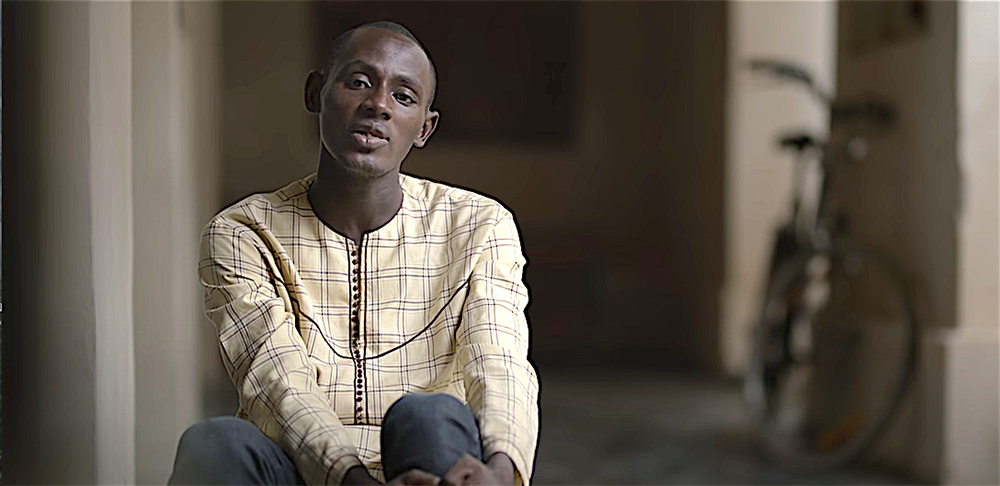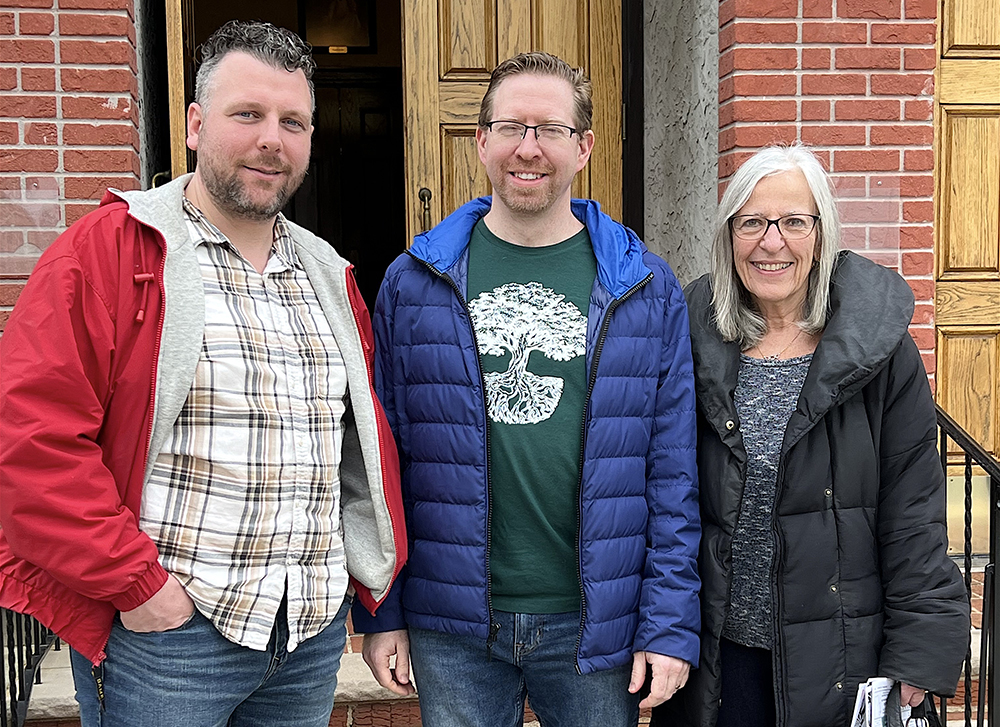
GLENDALE — “My name is Arouna Kandé,” says the young man from Senegal. “I am a climate refugee.”
This brief introduction appears near the start of “The Letter: A Message for our Earth.” This 2022 Vatican-produced documentary is about “Laudato Si’” — the encyclical from Pope Francis sounding the alarm about climate change.
Kandé’s story inspired parishioners at Sacred Heart of Jesus Parish in Glendale to join a movement that plants fruit trees in several African nations — Trees for the Future (trees.org).
The effort is intended to conserve soil while also providing new crops for local farmers to sell.
Joe Muller, who leads the parish’s Laudato Si’ prayer circle at Sacred Heart of Jesus, recalled how members last year successfully raised money to dig wells in Africa.
“That helped me think maybe we could do something similar with trees.org,” Muller said. “I was a little nervous that maybe we wouldn’t get that much. But it was a tremendous donation.”
They began last spring and raised $2,250 — enough to buy 9,000 fruit trees in the countries where the nonprofit operates.
“Trees for the Future plants four fruit trees for every dollar donated, both to increase harvests directly, but also so the trees help anchor in the soil,” Muller said.
This, he added, prevents erosion, retains water and replenishes nutrients.
In “The Letter,” Kandé recounts how he once worked the farmlands of Senegal — a coastal West African nation. But the soil became parched, killing the nutrients essential to grow pasture grasses for livestock and food crops.
But with no vegetation, the soil eroded, leaving a seemingly permanent “blank slate.”

Kandé considered taking a dangerous voyage on a rickety boat to Europe, but then he saw a better option — reforestation. By the end of the film, Kandé’s community is seen planting fruit trees to raise a new crop, but also to replenish soil nutrients.
Pope Francis wrote “Laudato Sí: On Care for Our Common Home” in 2015, but Trees for the Future (TFTF) began in 1989.
Based in Silver Spring, Maryland, the organization has also worked in Latin America, Southeast Asia, and Haiti.
Since 2014, however, it has focused on sub-Saharan African nations, including Kenya, Mali, Senegal, Uganda, Tanzania, Cameroon, Central African Republic, Chad, and Gambia.
He said partnering with TFTF excited members of the prayer circle, so he approached the pastor, Father Fred Marano, who gave permission to recruit parishioners following Mass on Sundays.
It was an easy sell to get the pastor’s permission, Muller said.
“I’ve known him a long time,” Muller said of Father Marano. “He was my ninth grade religion teacher at Cathedral Prep.”
Muller teaches at the Ursuline School in New Rochelle. His courses include theology, New Testament, world religions, and environmental ethics.
He noted that the Laudato Si’ prayer circle plans to keep supporting TFTF, and possibly garner participation from students at Sacred Heart Catholic Academy.
Meanwhile, the prayer circle is also working to educate parishioners on the importance of composting, which converts food scraps into soil enhancements. It also has the ability to produce enough heat energy to operate an electric turbine.
Father Marano praised the prayer circle’s work, saying they deserve all the credit — he merely supports them “100%.”
Muller, however, credited the pastor and Father John Fullum, pastor emeritus, for endorsing Laudato Si’ from the pulpit.
“They helped a lot,” Muller said. “Priests really need to do that in their parishes. And then parishioners will follow, as they did with the Right to Life movement.”
